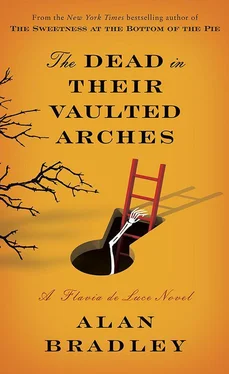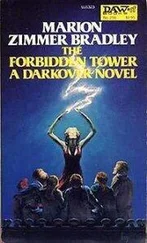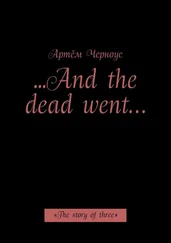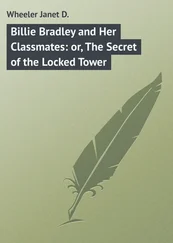Even listening to it from as far away as the foyer made my eyes damp.
“Feely,” I said at the drawing room door, “that’s beautiful.”
Feely ignored me and played on, her eyes fixed firmly on something in another universe.
“The sonata Pathétique , isn’t it?” I asked, taking great care to pronounce it as if I had been born on the Left Bank and baptized in Notre-Dame.
I could do such things when I wanted to.
Feely slammed down the lid and the piano let out an injured roar of strings, which went echoing on and on for an impressive amount of time.
“You just can’t resist, can you?” she shouted, waving her arms in the air as if she was still at the keyboard. “You do it every time!”
“What?” I asked. I don’t mind having my knuckles rapped when I’m guilty, but I hate it when I’ve done nothing.
“You know perfectly well,” Feely snarled. “And don’t give me that gaping simpleton look of yours. Close your mouth.”
I hadn’t the faintest idea what she was talking about.
“You’re just being tetchy,” I told her. “We agreed that I could point out to you when you were being tetchy without having my head bitten off. Well, you’re being tetchy.”
“I am not being tetchy!” she shouted.
“If you’re not being tetchy,” I said, “then your brain is most likely being devoured by threadworms.”
Threadworms were one of my latest enthusiasms. I had recognized at once their criminal possibilities when Daffy had brought them up one morning at the breakfast table. Not brought them up in the sense of vomiting, of course, but mentioned that she had been reading about them in some novel or another where they were being bred by a mad scientist with nefarious intentions who reminded her of me.
I had seized at once on the possibilities: a colony of threadworms raised in a glass tank in the laboratory, where they were allowed to crawl through soil saturated with cyanide. Was cyanide poisonous to the threadworm? Would they themselves survive while spreading the deadly poison through the brain of their victim with those bristles— setae , Daffy said they were called—which they possess instead of feet?
Feely was gathering a head of steam to erupt when I stopped her dead in her tracks.
“Actually, I’ve come to apologize,” I told her.
“For what?”
“For being inconsiderate. I know how difficult all of this has been on you. I worry about you, Feely—I really do.”
“Oh, horsewater!” she said.
In certain circumstances, my sister Feely had a remarkable way with words.
“Well, I do worry,” I went on. “I know you’re not getting enough sleep. Look at yourself in the mirror.”
If there was one thing Feely did not need to be told, it was to look at herself in the mirror. The looking glasses at Buckshaw—every last one of them—were flaking and peeling from Feely’s constant examination of her own image: her eyes, her hair, her tongue, her complexion.…
Every last crater of her old phizog was cataloged as carefully as it would be by an astronomer mapping the moon.
Yes! It had worked. I could already see Feely craning her neck surreptitiously to have a squint at herself in the chimneypiece mirror. She had fallen for my clever ruse.
“You’re pale,” I said. “You’ve been like that since—” I bit off the next words and gnawed a little at my lower lip. “You always give too much of yourself to others, Feely. You never think of yourself.”
I could see that I had her undivided attention.
“Miss Lavinia and Miss Aurelia, for instance,” I went on. “I could have shown them upstairs to pay their respects. You didn’t need to do that on top of everything else. You should be resting, damn it all!”
I surprised not only Feely, I surprised myself.
“Do you really think so?” she asked, drifting, as if absently, towards the chimneypiece and the hanging glass.
“Yes,” I said. “I do think so. I also think you ought to let me take the late vigil with Harriet and let you get some sleep. You won’t want to look haggard at the funeral, will you?”
This appeal to Feely’s vanity was not exactly fair play, but all’s fair in love and war and manipulating a stubborn sister.
Seeing that she was off guard, I decided to sit tight and see what happened. As I have mentioned before, it has been my experience that a prolonged silence has the same effect as a W.C. plunger when it comes to unclogging a stuck conversation.
And it worked. As I knew it would.
After a time, Feely drifted over to a sideboard and took out a piece of sheet music.
“Look what I found tucked into Tchaikovsky,” she said, handing it over.
I knew that Feely never played Tchaikovsky if she could help it.
“Too many sequins,” she had once told Flossie Foster, and Flossie had nodded knowingly.
Feely handed me a rather dog-eared piece of sheet music.
I took the music from her and read the cover. “Bitter Sweet, an operetta in three acts by Noël Coward. ”
Feely flipped the fragile pages. “Look here—near the end.”
Ta-ra-ra Boom-de-ay , I read.
“Harriet loved it. I think it was her favorite song. She used to sing it to Daffy and me when we were children.”
“She never sang it to me,” I wanted to say, but of course I didn’t. I was just a baby when Harriet vanished in Tibet.
“It’s an old music-hall song,” Feely said, spreading the pages open on the piano’s music holder.
She placed her hands on the keys and began to play, quietly, so as not to be overheard by the mourners.
“Ta-ra-ra BOOM-de-ay!” she sang. “Ta-ra-ra BOOM-de-ay.
“Do you know it?”
Actually I did, but I pretended I didn’t. I shook my head. We had been forced to sing the thing in Girl Guides back in the days before I was cashiered.
It was not the most intelligent song I had ever heard.
“I sometimes wonder,” Feely mused, “how well we really knew Harriet—if she was really the person we thought she was.”
“I wouldn’t know about that,” I said sourly.
Feely repeated the first couple of bars on the piano—softly, almost wistfully in a minor key—then picked up the music and put it away.
“About the vigil—” I began.
But before I could say another word, Feely drifted back towards the looking glass.
“Agreed,” she said, leaning in for a closer look at her cantankerous hide.
And that, incredibly, was that.
From 11:36 in the evening until 4:24 in the morning—four hours and forty-eight minutes, to be precise—I was to have Harriet entirely to myself.
TWELVE
AN ENDLESS QUEUE OF bodies snaked in through the open door and across the foyer, shuffling unaware across the black line which, in an earlier century, the warring brothers Antony and William de Luce had painted from front door to butler’s pantry, dividing the house effectively into two distinct halves: a line which was never to be crossed.
Everyone wanted to catch my eye; everyone wanted to touch me, to clasp my hand or my arm and tell me how sorry they were that Harriet was dead.
There was a woman with a lantern jaw and her seven children, each with its own little lantern jaw. It was like looking at a display in the window of a chandler’s shop. I could not remember ever seeing any of them before.
On the far side of the foyer was a skinny gentleman who looked like a startled broomstick. He, too, was a stranger.
“Dear Flavia,” Bunny Spirling wheezed, taking my hand. He was one of Father’s oldest friends, and as such, required some kind of personal response.
I gave him a glum smile, but it was not easy.
Although it seems shocking to say so, grief is a funny thing. On the one hand, you’re numb, yet on the other, something inside is trying desperately to claw its way back to normal: to pull a funny face, to leap out like a jack-in-the-box, to say “Smile, damn you, smile!”
Читать дальше












